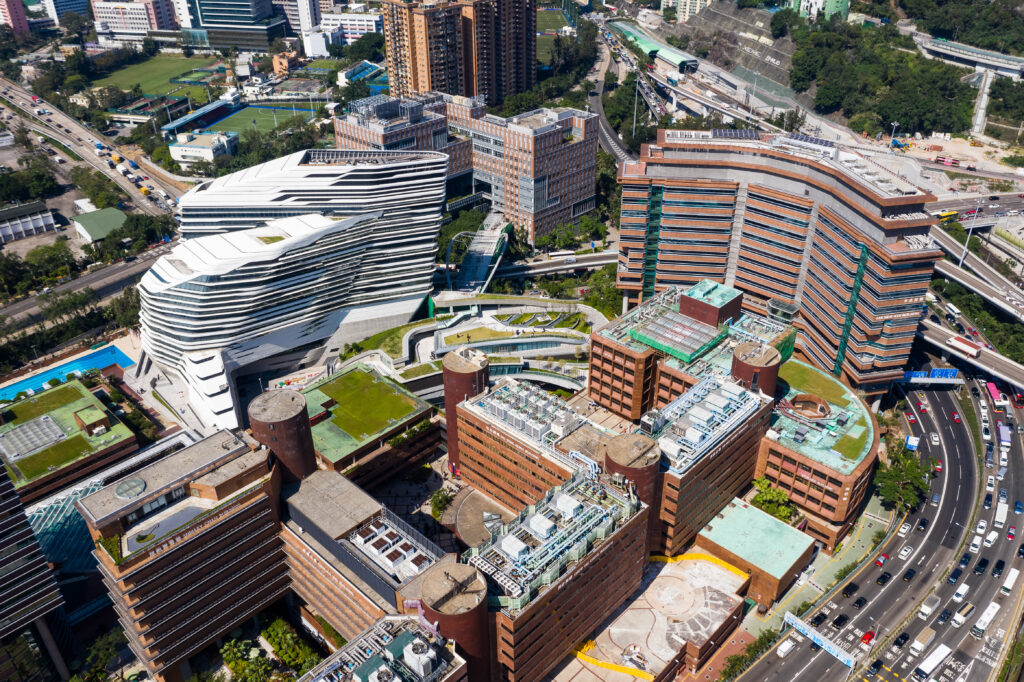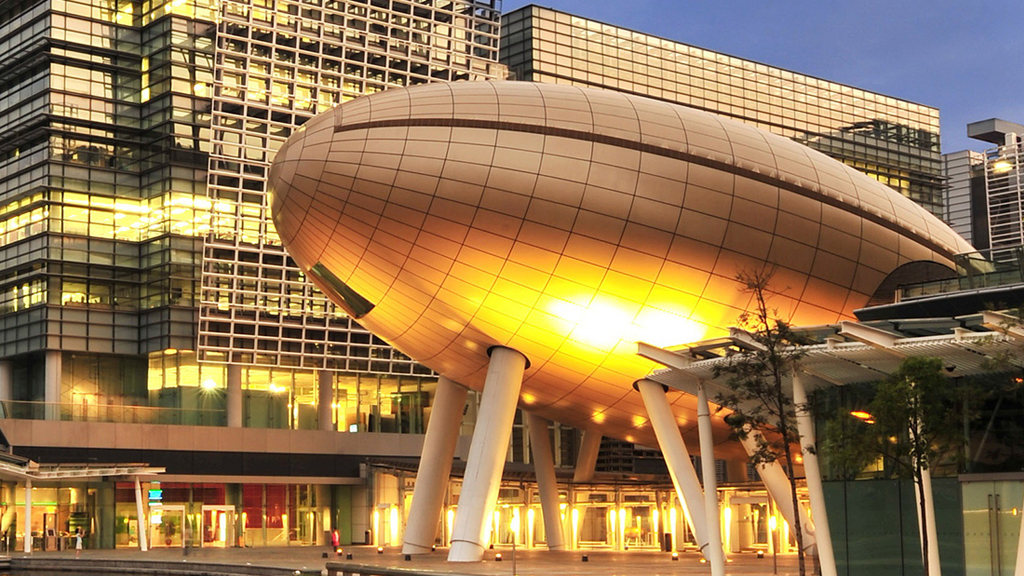Where’s the best place for startups in Asia – Hong Kong or Singapore? Both are thriving business hubs and great places to live. In this second installment of “Conversation Asia,” Donald Macintyre’s & Dick Wright look at the technology sectors in Hong Kong and Singapore. Both cities are vying to become hubs for tech innovation in the region. Where would you launch your start-up?
Dick Wright: Hi Donald. Our last conversation sure got us off to a heated start! People had strong views on whether Hong Kong or Singapore was the best place to set up a regional Asia Pacific headquarters. I guess it was pretty much a toss-up. But I’ll tell you, the hiking trails in Hong Kong make it the place for me.
Donald Macintyre: That’s the Canadian in you coming out, Dick. We also got lots of comments on the technology start-up scene in both markets – what say we dig a little deeper into that? Now, I’m willing to grant you Hong Kong has the better hiking trails but when it comes to starting a tech venture, clearly Singapore wins hands down as the best place for startups in Asia.
Dick: Not so fast, Donald. The start-up scene in Hong Kong is hot – and you’ve got everything you need from ideation to funding. A complete ecosystem, to use the mot du jour. For me, the best start-up resource in Hong Kong is a website called StartMeUp.HK. It’s a ‘one stop shop’ for the start-up scene in the city – which is great if you are used to the traditional government red tape and hard-to-find resources. They understand the entrepreneur’s headspace – no time to waste, need everything laid out, whether it’s for incubation programs, workspace, government support programs or even VCs.
Donald: Dick, I know Hong Kong is trying hard. But it takes more than a fancy website to build an ecosystem. You need the R&D infrastructure, the government grants, the generous tax breaks. Does Hong Kong have a big pool of investors and talent? Singapore has all that and more. There are lots of studies of the world’s best startup ecoysystems but to name just one – by the research group Startup Genome – Singapore ranked in the top 20 worldwide, tied with Stockholm for 17th place. Hong Kong back in the pack at 31st.
Singapore ranked in the top 20 worldwide, tied with Stockholm for 17th place. Hong Kong back in the pack at 31st.
Donald Macintyre
Dick: StartMeUp lists all government and public funding in one place – it’s great! But look, you can slice and dice this lots of ways. The reality is Hong Kong is full of major facilities that make it the best place for startups in Asia. The largest is the Hong Kong Science & Technology Park. They want to turn Hong Kong a regional hub for innovation and IT development. And they’ve been successful because they keep a sharp focus on a few areas like bio-tech, artificial intelligence and robotics. The other big one is Cyberport. They do “traditional“ technologies like smart living, digital entertainment/e-sports and cybersecurity, and some emerging technologies like AI, big data & blockchain. So they complement each other.
Donald: Incubators are important. But Singapore has more startups – just over 4,000. Hong Kong is just under. Hong Kong has a few more unicorns – 18 to 12, although the numbers keep changing. But you need to step back and look at the direction of travel, the culture you’re building for the long term. I’ve heard Hong Kong hasn’t quite made the shift in mindset you need to become a real centre of innovation. A survey by the government’s own Hong Kong Trade Development Council found startups have trouble raising funds in the private market. And sure, the government is handing out money but startups complain it takes too much paperwork to get your hands on it.


Dick: You have a point there. Singapore has done a good job of encouraging that entrepreneurial mindset. But it’s going to have a problem with talent, isn’t it? It’s not as welcoming to expats as it used to be and it’s a lot harder to bring in foreign talent. Here in Hong Kong, expats are still welcome. Plus there are at least five universities offering sciences programs that feed into the tech scene. So the talent pool is there.
Donald: Well, I have to say Hong Kong has been doing a pretty good job of driving away expats recently. The political crackdown and the handling of the pandemic have taken the shine off for a lot of people. You’re right, though, Singapore wants to keep the good jobs for the locals – and that’s understandable. But it’s shortsighted. You need that diversity and openness to fuel innovation and build companies that can be successful internationally.
Dick: I love it when you argue my case. And we haven’t even talked about Hong Kong’s world leading position in market capital fund raising. Donald, did you realise that Hong Kong is the world’s largest IPO center for biotech companies after New York? It’s a leading clinical trial hub in Asia, with a long history of medical companies doing business here. So that’s a big reason to be here.

Donald: Hong Kong does have a bigger stock market, true. So if you’re a later-stage start-up then maybe you’re looking at Hong Kong. But I don’t have to move my start-up to Hong Kong to do my IPO there. Besides, that’s way down the road – we’re talking about taking that idea scratched on the back of a napkin and turning it into a living, breathing and – eventually – profitable company. When nobody knows who you are, that access to government funding and a pool of investors is crucial. In Singapore, you’ve got that.
Dick: So can we agree Singapore and Hong Kong both have their pros and cons? And maybe the verdict isn’t in yet.
Donald: I don’t think it is. And we haven’t look at whether getting closer to China helps or hinders Hong Kong’s startup scene. Maybe we’ll leave that for another day?
Dick: Let’s. I’ve got some hiking to do…

Continue the conversation and connect with Dick and Donald on LinkedIn.
Is Hong Kong or Singapore best for startups in Asia? Fast Facts

Singapore:
Strategically located north of the Singapore Strait, one of the world’s busiest commercial routes, this small island city-state has a GDP of 340 billion U.S. dollars and a population of just under 6 million. Singapore is a stable and prosperous global financial hub.

Hong Kong:
A special administrative region of China, this city is a bustling trade and financial hub with a GDP of 346 billion U.S. dollars and a population of about 7.5 million. Chinese and Western influences keep the culture and economy vibrant.

Donald Macintyre | Senior Consultant | Vancouver, Canada
Donald Macintyre is a communications professional and former Time magazine correspondent with more than 20 years of experience working in Europe and Asia. He has led communication teams at major banks in Japan and Singapore, advising senior leaders on organizational and change communication and developing innovative content to drive staff engagement.
As head of communications for Standard Chartered’s global retail banking business, he led a team that supported business process and culture change for 30,000+ employees across 30 markets in Asia, Africa and the Middle East. Obsessive about good writing, he also created a style guide for the bank and developed writing training courses for mid-level managers and front-line staff. In an earlier career in journalism, Donald worked for Bloomberg and Time magazine in Tokyo and was later based in Seoul for six years as Time’s first permanent bureau chief for North and South Korea. He speaks French, Italian and Japanese and he’s working on his Korean.

Dick Wright | Senior Consultant | Hong Kong, SAR P.R.C.
Dick has been working out of Hong Kong and across the Asia Pacific for over 24 years. During that time, he has worked in agency with Hill & Knowlton and in-house with Lucent Technologies, Alcatel and BT Global Services. During these years he developed a two-pronged expertise of crisis issues management and media skills training, alongside a Telecommunications technology focus working as a part of Asia Pacific and global teams.
He has extensive experience in ‘real’ crisis comms situations. These include extensive redundancy communications, hands-on crisis situations including FCPA and labour issue work in China and employee issues in Guatemala with US owners and Chinese contractors. He has also built four day training programs with hundreds of participants, across multiple cities. He was a registered Lobbyist in Ottawa for the Government Business Consulting Group where he focused on big pharma patent protection, open skies between Canada/US and procurement issues in expanding private business opportunities in the government procurement process. Dick has an MBA from Kellogg/HKUST, a degree in Asian Management and a Bachelor of Arts in Political Science, English & Economics. He speaks English, some French and basic Cantonese.
Get Tantalus Alerts
Receive high-value actionable insights for management and communications professionals. We only send what matters most.


